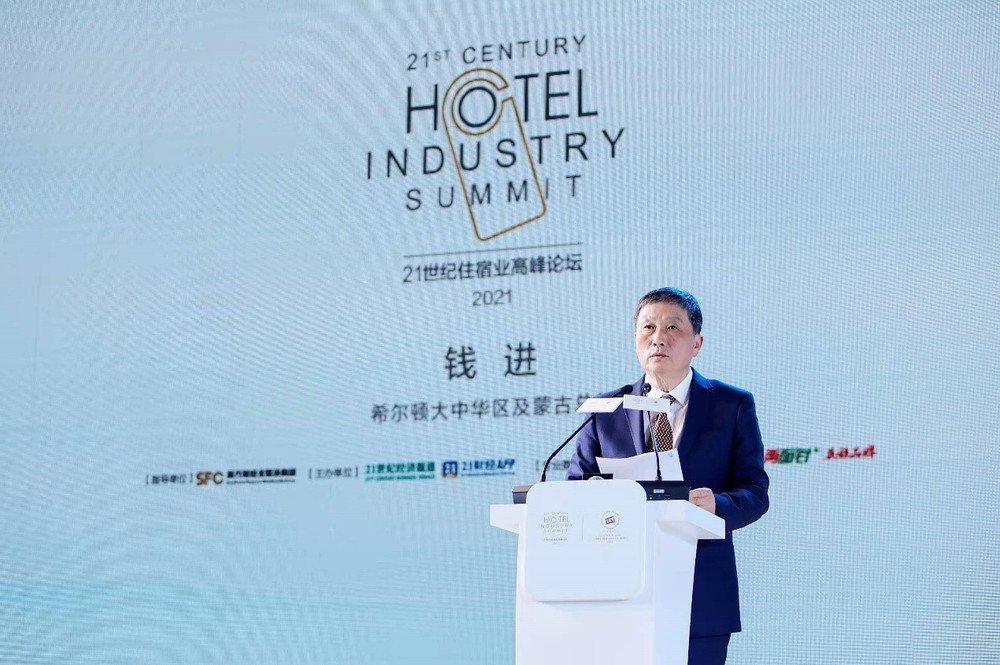Duration: 3 days. Time: December. Per capita cost: 3000 yuan. With whom: Friends. Play style: Cultural, petty bourgeois. Published on December 23, 2021, 13:22. 2021 is the first year of the “14th Five-Year Plan”. Currently, international tourism has not yet recovered. Under the pattern with domestic tourism as the main body, combined with the return of mid-to-high-end consumption demand from outbound tourism and the gradual release of the quality demand of the mass market, this year has become a year for China’s tourism industry to fully explore its endogenous driving force. Affected by the repeated outbreaks of the epidemic, the tourism and hospitality industry this year had a high start and then a low trend, with uneven heat. Especially since the second half of this year, there has been a continuous sporadic epidemic situation in many places in China, adding uncertainty to the recovery of the hospitality industry. In this context, how will the competitive landscape and investment logic of the domestic hospitality industry evolve? Can the branded, intelligent, and quality development path of the hospitality industry find new driving forces that guide continuous growth in the future? On December 14, the “21st Century Hospitality Summit (2021)” hosted by 21st Century Business Herald was held in Shanghai. This forum, with the theme of “Adherence and Transformation: Finding New Momentum”, focuses on the response of the domestic hospitality industry in the post-epidemic era to welcome the new normal and explore new development. Deng Honghui, deputy chief editor of Southern Finance Omnimedia Group and chief editor of 21st Century Business Herald. Deng Honghui, deputy chief editor of Southern Finance Omnimedia Group and chief editor of 21st Century Business Herald, said at the forum that although many tourism practitioners feel that business this year is more difficult than last year, the hospitality industry is still resiliently recovering amid continuous changes. The epidemic has changed people’s demands and also forced the development of the industry. The tourism and hospitality industry needs to provide more diverse categories for the changing market. Seeking change in a changing situation. As the first year of the “14th Five-Year Plan”, the domestic hospitality industry has experienced another year of epidemic normalization in 2021. According to statistics released by the Ministry of Culture and Tourism, in the first three quarters of this year, the total number of domestic tourist trips was 2.689 billion, recovering to 58.5% of the same period in 2019. The total domestic tourism consumption was 2.37 trillion yuan, recovering to 54.4% of the same period in 2019. In the case of repeated epidemics this year, the domestic hospitality industry is still tenaciously seeking change in uncertainty. Yang Honghao, director of the Institute of Industry of the China Tourism Academy, pointed out at the forum that China’s construction of a “dual circulation” economic development pattern has a profound impact on the development of the hospitality industry. Not only have the consumption preferences and consumption habits of tourists on the demand side changed, but the industrial pattern of the hospitality industry has also changed, and the head effect has been strengthened. Based on the current environment and changes in the hotel industry, Yang Honghao made several judgments on the strategic layout of the hotel industry.
Firstly, the dual circulation economic pattern is primarily based on domestic circulation, hence the focus of China’s accommodation market will shift to the domestic market. Following the shift in market structure and focus, innovation in the accommodation industry is imperative. Secondly, with the transformation of development models, the hotel industry’s focus will return to the core operations and management of hotels themselves. Thirdly, the hotel industry must actively fulfill its social responsibilities, addressing both internal and external concerns. Fourthly, regarding market penetration and globalization, on one hand, the hotel industry should delve deeper into third and fourth-tier cities and even fifth-tier cities and communities. On the other hand, international development is still necessary, with the need to expand outwards. Jin Jiang International Group Vice President, Chairman of Jin Jiang Hotels, and Chairman of Jin Jiang Hotels (China) Zhang Xiaoqiang, with the theme of ‘Seeking New Momentum—Jin Jiang’s Practice Driven by Innovation’, shared the necessity for current hotel companies to drive development through innovation in an environment filled with uncertainties. He mentioned that this year marks the 20th anniversary of China’s accession to the WTO. Without the pandemic, these 20 years would have been a period of prosperity for hotel companies of various ownership types—foreign, private, and state-owned. However, the pandemic has changed the status quo, plunging the hotel industry into a state of intense turmoil. ‘What we face is not only a decline in profits and danger but also a lack of growth and innovation,’ said Zhang Xiaoqiang. He described that the development of the hotel industry over the past 20 years has been fast-forwarded, with rapid expansion akin to land grabbing. Yet, the pandemic has slowed down or even halted this progress, making it challenging but a reality. On another note, Zhang Xiaoqiang also indicated that the pandemic has prompted the hotel industry to rethink the suitability of its original models, experiences, operations, and products to meet new consumer demands. Finding growth amidst uncertainties is not easy, and Jin Jiang’s answer is ‘innovation’. Home Inns General Manager Sun Jian, a seasoned practitioner in the domestic hotel industry, shared the path of transformation for the domestic hotel industry in the post-pandemic era. In his view, exploring transformation is the next benchmark for the hotel industry. In the first half, hotel groups won the competitive landscape with ‘speed and scale’, being ‘fast and big’. However, in the transformation battle of the second half, the hotel industry needs to move towards a ‘professional and refined’ direction, focusing on ‘specialization and detail’. Sun Jian believes that in this transformation and change, the hotel industry should start from an innovative perspective, focusing on four aspects: models, products, space, and users. In the impression of Qian Jiannong, Chairman and CEO of Fosun Tourism and Culture Group, the emergence of economy and business hotels is continuously enriching the categories on the supply side.

The supply of resort-style categories remains in high demand. Qian Jiannong pointed out that the reason why Fosun Tourism and Culture focuses on the resort sector in the accommodation industry is closely related to the overall environment of China’s accommodation industry. ‘Firstly, there is a structural adjustment. The Chinese accommodation industry, whether it is a single business or its own business, will definitely eliminate poor production capacity. This challenge is long-term. Secondly, there is the recovery of consumption. How will the consumer market recover in the future, and what exactly is the trend of consumption during the recovery process? This forms a significant challenge for the development of our future accommodation industry.’ Qian Jiannong stated that as the tourism industry in various countries gradually enters the recovery channel, especially with China taking a leading position in the recovery process, the future development of the entire tourism industry still has a huge prospect. Especially for the accommodation industry, the upgrading of consumption and the changes in levels are driving the diversified development of the accommodation industry. Despite the repeated impact of the epidemic, China’s accommodation industry recovery is at the forefront globally. In the post-epidemic era of China’s accommodation industry market, international hotel leaders are also sparing no effort in seeking support points for future development. Qian Jin, President of Hilton Greater China and Mongolia, said, ‘It is often said that ‘the only constant is change itself.’ What is predictable is that under the bonus of national policies and with the normalization of the post-epidemic era, understanding the market, resisting risks, and understanding talents are the basic requirements of the times for the development of international hotel groups in China. It will also be a window for China to showcase its services to the world. In the new era, I am full of expectations for the future of the hotel industry, and I believe everyone has their own goals and determination, just like me, to meet new opportunities and challenges together.’ Qian Jin stated that international hotel groups must be closely connected with Chinese consumers to achieve significant development and should always maintain a high sensitivity to the Chinese market and Chinese consumers to move forward at high speed and steadily on the right track. This year, with the local recurrence of the domestic epidemic, the accommodation industry has not seen the normal operation but the normalization of the epidemic. Liu Yaning, Director and Vice President of Diaoyutai MGM Group, firmly believes in the development prospects of the domestic hotel industry. ‘Firstly, although the epidemic is severe, it will not affect the basic plate of high-end hotels in China. Secondly, China’s hotel industry, especially high-end hotels, needs to ‘break the circle.’ In fact, with the opportunity of the epidemic, the demand structure of the domestic hotel industry has also undergone a transformation. With the inability to go abroad for vacations in the short term, Chinese people have turned to the domestic market, giving new driving force to China’s luxury hotel industry under the epidemic. Regarding the ‘break the circle’ path for high-end hotels, Liu Yaning mentioned that the key to scaling is cost control, and the key to differentiation is value creation, but they are not independent of each other.
If value creation is done well enough and the quality attraction is strong enough, it can generate a spiraling upward trend. In the view of Tang Jia, Vice President of Marketing for the Asia-Pacific region at Lishi Hotel Management Group, the accommodation industry can be endowed with a richer connotation. The meaning of ‘X’ in ‘Accommodation + X’ includes a rich array of elements such as people, food, culture, wilderness luxury, customs, beliefs, history, and heritage. ‘For some destinations, our promotion of the destination may be as important as the tourism bureau’s. We hope to bring not only benefits to the hotel side but also equal returns to the local tourism bureau, the local people, including owners and investors, forming a win-win situation for all parties.’ Tang Jia said, ‘Accommodation + X’ is not a complete increment for hotels, but rather a way to truly make guests fall in love with the uniqueness created by the hotel and the deep resonance with the local culture. As an important branch of the accommodation industry, the homestay industry has experienced development fluctuations like a ‘roller coaster’ in recent years. ‘Accommodation is not just about staying; it is a school based on local natural education, combining the small accommodation space with a school of natural education.’ Zhu Shengxuan, the founder of Xiangban Culture and Tourism, has opened up a lowland for the development of the accommodation industry in rural areas, ‘Homestays are the windows to the countryside, re-energizing and bringing back the youth.’ Since the outbreak of the pandemic in 2020, the supply side of the domestic accommodation industry has undergone a transformation, with some individual hotels being cleared out and market concentration moving towards leading companies, the domestic hotel industry has also entered an era of ‘great competition’ among major brand camps. Under this background, for hotel groups, the transformation from the supply side will become the core theme of the hotel industry’s development under the normalization of the pandemic. In this context, hotel groups need to seek innovation and transformation in terms of brand, business format, and technology. For hotel owners, under the normalization of the pandemic, new investment opportunities in the hotel industry have emerged. Different brand positioning, different business models, and different investment return expectations will all determine the direction of the owners’ choices for hotel investment. Despite the severe impact of the pandemic on the tourism industry, the transaction volume of the hotel industry this year is close to the figure of 2019, and in the Asia-Pacific region, China’s hotel transaction volume has surpassed Japan for the first time, indicating that Chinese hotel investors are still continuously entering the market. Tang Ming, Chairman and President of Shanghai Shimao Hotel Management Co., Ltd. and President of Shimao Star Hotel Group, expressed in the roundtable dialogue at the 21st Century Accommodation Industry Summit (2021) that 2022 will be a year of frequent hotel asset transactions in China and also the year when hotel asset management officially starts.
Tang Ming believes that in addition to valuing the premium capabilities that international management companies bring to brands, hotel owners should also consider their innovation and operational capabilities, as well as how well they have localized their operations, all of which will be key points for owners to consider. In the future, owners will place more emphasis on communication with management companies beyond brand management. Jiang Bo, Deputy General Manager of Luneng Taishan Vacation Club and General Manager of the East China Regional Hotel Asset Management Center, believes that as an owner, he will pay more attention to the fit with the project. “We do not focus on how well we cooperate, but more on achieving a win-win situation and establishing a mechanism where both parties can check each other. So in the process of selecting a management company, we do not shy away from discussing our differences. We can be different but still united in purpose, and our ultimate goal is to find common ground and understand how to reach the same destination through different paths.” Zhang Ye, Vice President of Sunac Cultural Tourism Group, pointed out that hotels are a part of the entire cultural tourism format, which includes commerce and themed entertainment externally. Integrating multiple formats may be an important means to improve the return on hotel investment. “We are facing a new era. Consumers have changed, and so have their consumption needs. We must reform. If we do not change, we may be considered as an alternative option by consumers.” Zhu Xiaogang, President of Yongle Huazhu Hotel Management Co., Ltd., summarized that the hotel industry, during its past rapid development, has undoubtedly been propelled by real estate. The current environment should be seen as the beginning of a new cycle of business and consumption models for every industry enterprise, rather than the end. The 18th ‘Golden Pillow’ Hotel Awards Ceremony 2021 (the 18th) ‘Golden Pillow’ Hotel Awards Ceremony was also held at the forum venue with great fanfare. The event, initiated by ’21st Century Economic Report’ in 2004, has accompanied the development of China’s hotel industry for eighteen years, always committed to discovering excellent models, disseminating benchmark values, promoting industry transformation, and exploring future directions. It is highly regarded in the industry and has a wide reputation and credibility among business readers and high-knowledge groups. This year’s ‘Golden Pillow’ Hotel Awards, on the basis of consistently using big data models to evaluate the real reputation of hotels, has added a ‘Smart Hotel Case’ category. By selecting outstanding practices of hotels in using digital technology to improve operational efficiency and consumer experience, it provides more references for hotel managers and consumers. It is reported that nearly 90 honors including hotel groups, hotel management companies, hotel brands, hotel owners, and individual hotels were grandly announced, showing the exemplary power leading the continuous progress of China’s accommodation industry under the new normal of the epidemic.
Attached: The 18th ‘Golden Pillow’ Hotel Awards shortlist includes:
Main Awards:
A. Hotel Figures
– 2021 Best Leader in China’s Hospitality Industry: Mr. Zhang Xiaoqiang, Vice President of Jinjiang International Group, Chairman of JinJiang Hotels, and Chairman of JinJiang Hotels China Region; Mr. Sun Jian, General Manager, BTG HOMEINNS Hotels (Group) Co., Ltd.; Mr. Jin Qian, Area President, Hilton Greater China and Mongolia; Mr. Tyrone Tang, President, Shimao Star Hotels Group.
– 2021 China’s Best Hotel Manager: Mr. Jerry John, General Manager, W Shanghai – The Bund; Mr. George Edward, General Manager, Club Med Joyview Anji Resort; Mr. Kenny Zhang, General Manager, Grand New Century Hotel Haining; Ms. Kathy Ma, General Manager, Hilton Zhoushan; Ms. Grace Li, General Manager, Liantou Peninsula Hotel & Resort.
B. Hotel Groups, Management Companies, Owners & Brands
– 2021 China’s Most Popular Hotel Group: Marriott International, Huazhu Group, Wyndham Hotels & Resorts.
– 2021 China’s Most Investment-worthy Hotel Management Company: New Century Hotels & Resorts, Dossen Group, Wanda Hotels & Resorts.
– 2021 China’s Most Popular Hotel Brand: Club Med, LUX* Resorts and Hotels, Primus.
– 2021 China’s Most Popular Serviced Residence Brand: Ascott.
C. Individual Hotels
– 2021 China’s Most Popular Business Hotel: The Ritz-Carlton, Beijing; JW Marriott Hotel Chengdu; InterContinental Shanghai Ruijin; Four Seasons Hotel Shenzhen; Kerry Hotel Pudong, Shanghai; InterContinental Century City Chengdu; Hilton Suzhou; Hyatt Regency Wuhan Optics Valley.
– 2021 China’s Most Popular Resort Hotel: Fuchun Resort; DESERT STAR HOTEL; JZ HOTEL; GIRAFFE MANOR; HOTEL SOUTH TAIHU; InterContinental Xishuangbanna Resort; Hilton Linzhi Resort; Wonderland Resort, Hangzhou; Hilton Dalian Golden Pebble Beach Resort.
– 2021 China’s Best Newly Opened Hotel: The Londoner Hotel; Club Med Lijiang; W Changsha; Hilton Shanghai Songjiang Guangfulin; Mumian Beijing Daxing International Airport; Shangri-La Shougang Park, Beijing; Haitian Hotel; Wenzhou Marriott Hotel.
– 2021 China’s Best Luxury Hotel: Wanda Reign on the Bund; Maison Albar Hotels Guiyang; Regent Chongqing; W Suzhou; W Shanghai – The Bund.
– 2021 China’s Best Design Hotel: Rosewood Beijing; Diaoyutai Boutique Hotel Chengdu.
– 2021 China’s Best Service Hotel: WESTLAKE STATE GUEST HOUSE; The Ritz-Carlton, Tianjin.
– 2021 China’s Best Parent-child Hotel: Club Med Joyview Anji Resort; Yinrun Jinjiang Castle Hotel.
– 2021 China’s Best Serviced Residence: K11 ARTUS.
Smart Hotel Cases:
– 2021 Excellent Intelligence Application Case: Hanting Hotel – Full Process Digital Operation Service; Dali International Hotel – Southwest’s First Feizhu Future Hotel.
Specific Awards:
A. Hotel Groups, Management Companies, Owners & Brands
– 2021 China’s Leading Hotel Group: JinJiang Hotels China Region.
– 2021 China’s Outstanding National Hotel Management Company: Risesun Hotel Management CO.,LTD.
– 2021 China’s Outstanding Upper Midscale Business Hotel Brand: Hampton by Hilton.
– 2021 China’s Outstanding Stylish Business Hotel Brand: Le Joy Hotel.
– 2021 China’s Influential Business Hotel Brand: VIENNA HOTEL.
– 2021 Influential Midscale Foreign Hotel Brand: Kyriad Marvelous Hotel.
– 2021 China’s Innovative Hotel Brand for Experience Space Design: Eeril Hotel.
– 2021 China’s Most Influential National Hotel Brand: HanTing Hotel.
– 2021 China’s Influential Business Hotel Brand: JINJIANG INN.
B. Individual Hotels
Business Hotels:
– 2021 China’s Outstanding MICE Hotel: Sheraton Grand Beijing Dongcheng Hotel.
– 2021 China’s Outstanding City Skyline Hotel: The Langbo Chengdu, in The Unbound Collection by Hyatt.
– 2021 The Most Popular City Business Hotel in East China: Shanghai Marriott Hotel Riverside.
– 2021 Outstanding Business Hotel in City Central Business District: Grand New Century Hotel Haining.
– 2021 The Most Attractive City Business Hotel: LONGYAN JINGHUA FLIPORT HOTEL.
– 2021 China’s Outstanding Airport Hotel: Garden Lane Meilan Airport.
Resort Hotels:
– 2021 China’s Outstanding Theme Resort Hotel Cluster: Oriental Salt Lake City Hotel Cluster.
– 2021 The Best Garden Culture Resort Hotel in East China: Hilton Zhoushan.
– 2021 China’s Outstanding Seaside Resort Hotel: Hilton Zhoushan.
– 2021 The Most Popular Seaside Resort Hotel in South China: Wyndham Grand Plaza Royale Shuangyue Bay Huizhou.
– 2021 Outstanding New Travel Lifestyle Hotel: Hilton Garden Inn Sanya.
– 2021 China’s Outstanding Parent-child Resort Hotel: Liantou Peninsula Hotel & Resort.
– 2021 China’s Outstanding Parent-child Study Travel Hotel: New Century Resort Dazong Lake Yancheng.
– 2021 Selected Parent-child Resort: LE’BONNY.
Newly Opened Hotels:
– 2021 China’s Outstanding Newly Opened Business Hotel: Crowne Plaza Xiamen Jimei Seaview.
– 2021 China’s Excellent Newly Opened Resort Hotel: Courtyard by Marriott Liuzhou Sanjiang.
– 2021 The Most Expected Newly Opened Hotel in North China: Oakwood Hotel & Apartment Daxing Beijing. (Reported by Cao Enhui, 21st Century Economic Herald, Shanghai).






